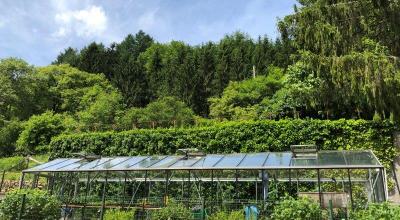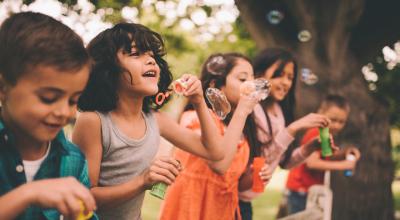
Diekirch refugee center: a gardening initiation to enjoy the summer days
Thursday 22 July 2021
Located in a green setting below their accommodations, the residents of the Diekirch refugee center have embarked on a gardening project that is beginning to pay off. The garden is quickly evolving and starting to spread towards the buildings while fitting harmoniously into the rural environment of the Diekirch heights.
The initiative, which is reminiscent of the traditional allotments scattered around Luxembourg's steel factories, provides a hobby for all those with a green thumb. Even more.
Indeed, the hardest working gardeners (about fifteen people) are spending several hours a day on this voluntary basis project. If the weather allows it. Nevertheless, with surprising results.
Some of them are beginners in gardening and yet reaching unexpected yields, especially with potatoes. Enough to start preparing the famous "Gromperekichelcher".
Others are more experienced and even succeed to grow inside greenhouses the spices so appreciated by their Middle Eastern cuisine.
This attractive project also chooses to grow organic crops without pesticides, particularly by using intercropping, which allows diversifying the cultivated plants while using sustainable practices for the environment.
With the help of Nicolas Lemercier, educator at the Diekirch structure, the residents have access to the seeds and materials required for the maintenance of their plots. The plots allocation and their sizes correspond to the number of members of the enrolled family or according to the number of singles who are joining forces to work the land.
The spirit of this project is one of self-management. Beginners are asking for help at first with the basics of gardening. Then they are encouraged to manage their plots themselves, like finding a new volunteer when they leave the residence. Some of them are demonstrating great ingenuity, especially in the construction of greenhouses made essentially from recycled materials" explains Nicolas.
Each volunteer is learning and shares new skills. More generally, the residents are gathering new communication tools for their future inclusion in the Luxembourg job market.
This new passion for gardening also allows residents to face financial hardship, especially for the least fortunate families, as gardening also allows them to collect fresh fruits and vegetables at a lower cost.
In addition, gardening helps the refugees to rebuild their self-confidence and relieves some of the daily tensions in the shelter.
Linked news
Donate
Your donation is essential to ensure the continuity of Caritas Luxembourg's actions in the service of the poor.
Other donation methods


